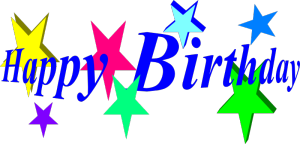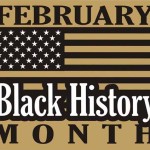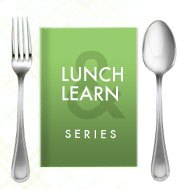Changes in the BLS Library hours for the week of April 14th are as follows
Tuesday, April 15th 9:00 am – Midnight
Friday, April 18th 9:00 am – 10:00 pm

 Have a particular legal issue you are keen on? Interested in writing about it? If so, then submit your paper to be considered for the annual Brown Award given by the Judge John R. Brown Scholarship Foundation.
Have a particular legal issue you are keen on? Interested in writing about it? If so, then submit your paper to be considered for the annual Brown Award given by the Judge John R. Brown Scholarship Foundation.
The Award is in recognition of Excellence in Legal Writing in American Law Schools. There is no limitation as to topic; only that the writing must be on a legal subject.
Any student wishing to submit a paper must have a letter of recommendation from a faculty member. Specific details regarding the competition may be found here.
Some topics from last year’s winners.
First Place: Information Traps
Second Place: Beneath the Surface of the Clean Water Act: Exploring the Depth of the Act’s Jurisdictional Scope of Groundwater Pollution
Third Place: Lien on Me: The Survival of Security Interests in Revenues from the Sale of an FCC License
 The Pew Research Center, the nonpartisan fact tank that informs the public about the issues, attitudes and trends shaping America and the world, recently released the report, The Web at 25 in the U.S.
The Pew Research Center, the nonpartisan fact tank that informs the public about the issues, attitudes and trends shaping America and the world, recently released the report, The Web at 25 in the U.S.
What were the report’s findings? “The internet has been a plus for society and an especially good thing for individual users” proclaims its subtitle. But we all knew that.
Here are some highlights from the report:
Social media did not command as great an appreciation. Only 10% reported that they would find it very hard to give up social media.
For almost 20 years, Thomas has been the official source for federal legislative information. Now, users trying to access Thomas will be directed to Congress.gov.
As of now, Congress.gov is a beta site and will remain a beta site until the shifting of all data sets from Thomas is complete. The full transition is expected at the end of 2014, and at this time Thomas will be permanently retired.
Congress.gov replaces Thomas with a system that includes platform mobility, comprehensive information retrieval and user-friendly presentation. It currently includes all data sets available on Thomas except nominations, treaties and communications. As mentioned above, all data sets will be included by the end of this year.
If you are interested in learning how to navigate the new platform, online training is available. Sign up here.
 To commemorate and celebrate the contributions to our nation made by people of African descent, American historian Carter G. Woodson established Black History Week. The first celebration occurred on Feb. 12, 1926. For many years, the second week of February was set aside for this celebration to coincide with the birthdays of abolitionist/editor Frederick Douglass and Abraham Lincoln.
To commemorate and celebrate the contributions to our nation made by people of African descent, American historian Carter G. Woodson established Black History Week. The first celebration occurred on Feb. 12, 1926. For many years, the second week of February was set aside for this celebration to coincide with the birthdays of abolitionist/editor Frederick Douglass and Abraham Lincoln.
In 1976, as part of the nation’s bicentennial, the week was expanded into Black History Month. Every year, U.S. presidents issue annual proclamations proclaiming February as National African-American History Month. President Obama issued his proclamation on Friday February 1st, and in it said “During National African American History Month, we honor the men and women at the heart of this journey – from engineers of the Underground Railroad to educators who answered a free people’s call for a free mind, from patriots who proved that valor knows no color to demonstrators who gathered on the battlefields of justice and marched our Nation toward a brighter day.”
The Library has many biographies of renowned African Americans in its collection. Below is a selected list.
Thurgood Marshall : race, rights, and the struggle for a more perfect union
Becoming King : Martin Luther King, Jr. and the making of a national leader
Stepping up : the story of Curt Flood and his fight for baseball players’ rights
Rebels in law : voices in history of Black women lawyers
Black Americans in Congress, 1870-2007
Nicholas Parrillo is an Associate Professor of Law at Yale Law School who teaches administrative law, legislation, and American legal history. He recently published an article in the Yale Law Journal on legislative history, which according to the Legal History Blog, “relates the rise of the use of legislative history to the expansion of the federal bureaucracy and the emergence of a specialized regulatory bar.”
Here is the abstract of his article posted on SSRN:
During the reading and exam period, you must make a reservation to use a library study room. Mandatory study room reservations will begin Thursday, Dec. 5, at 8:00 am; at that time all study rooms will be locked and you must go to the first floor circulation desk when your reservation time begins to charge out the key to the room. The link to the study room reservations is on the library homepage, under “Related Links” on the right side of the page.
Library hours for the reading and exam period:
· Reminders:

The free legislative information website, Congress.gov, is transitioning into its permanent role as the official site for federal legislative information from the U.S. Congress and related agencies. The site, which launched in beta form last fall and features platform mobility, comprehensive information retrieval and user-friendly presentation, is replacing the nearly 20-year-old THOMAS.gov.
Beginning Nov. 19, typing Thomas.gov into a web browser will automatically redirect to Congress.gov. Thomas Twitter followers will be transferred to the Congress.gov Twitter account. THOMAS.gov will remain accessible from the Congress.gov homepage through late 2014 before it is retired.
To help ease the transition for users from THOMAS.gov to the new site, the Library of Congress is offering online training webinars over the next few months. Complete this form if you wish to register for a training webinar.
 to register for the Library’s upcoming Lunch and Learn programs.
to register for the Library’s upcoming Lunch and Learn programs.
There is still room for the following sessions –
October 16: Statutory Research
October 23: Apps for Legal Research: Westlaw, Lexis, HeinOnline, Fastcase
October 30: Using Law Reviews for Research
Unfortunately, the October 9 Case Law Research session is sold out.
Please join us for the remaining sessions. Lunch will be provided.
See you then.